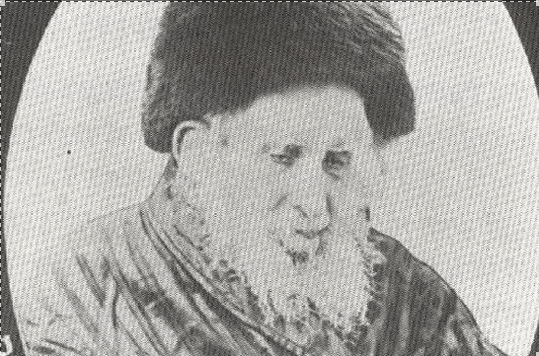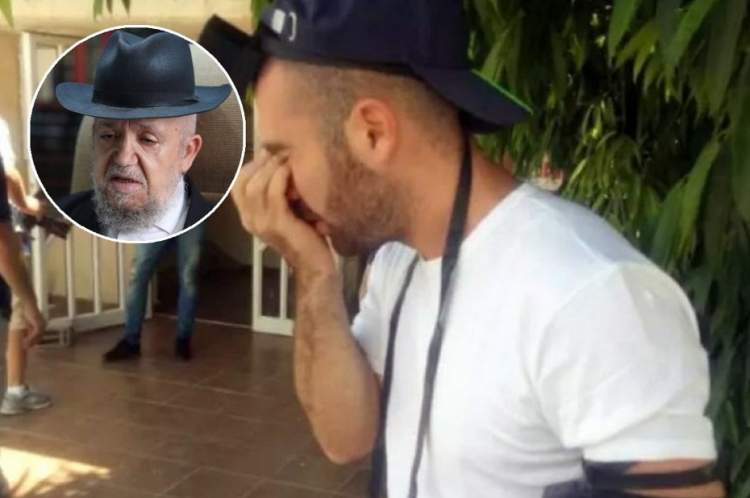Question
Dear Rabbi,
My wife lights candles every week with the regular white paraffin ones they sell in the store. She lights one for each of us and one for each of the children. I now heard from someone that in order to have children who love the Torah, you must light another two just from olive oil – but this was never our custom. Is it something that we should accept upon ourselves from now on?
Answer
To the Questioner,
When you learn the Mishnayot of Shabbat (2:2), you know that the opinion of Rabbi Tarfon is “[We] do not light [with any other substance] except for with olive oil alone”. Rabbi Tarfon’s reasoning for requiring this is because olive oil actually lights nicer and clearer than any other combustible substance (Tiferet Yisrael on the Mishnayot, letter 25).
However, it is clear from the Talmud in Shabbat (26a) that we do not pasken like Rabbi Tarfon. The Talmud recounts a Braisa which records that after Rabbi Tarfon had stated his opinion on the matter in the Bet Midrash, Rabbi Yochanan ben-Nuri stood on his feet and voiced: “What will the people of Bavel do who do not have anything other than sesame oil; and what will the people of Madai do who do not have anything other than walnut oil; and what will the people of Alexandria do who do not have anything other than radish-seed oil; and what will the people of Kapadokia do who do not have any of these and only have kerosene? Rather, it is not for you [to follow] anything other than what the Chachamim have said not to light with.”
Accordingly, the Bet Yosef in Shulchan Aruch (Orach Chaim 264:6) follows the Psak of the Tur, that one may light with all the other types of oil that were not singled out by the Chachamim as substances that are prohibited to light with.
Interestingly enough though, the Bet Yosef then adds on his own (to that same halachah in Shulchan Aruch): “Nonetheless, [to use] olive oil [for the lighting] is an extra special mitzva.”
In actuality, this wording of “an extra special mitzva” is stated by Rabi Yehoshua ben Levi in the Talmud Shabbat (21a), who, amidst a sugya (Talmudic discussion) that is discussing Chanuka lighting, states that lighting with olive oil is “an extra special mitzvah”. The reason cited for it being “an extra special mitzvah” is because it makes a clearer light. The Bet Yosef in the Shulchan Aruch then applies that same wording in regard to the lighting of Shabbat candles.
It comes out after learning all of the above sources, that both Rabbi Tarfon and Rabbi Yehoshua ben Levi are of the opinion that olive oil is best to use for any mitzva of candle lighting because of the quality of the light it creates. Their opinion is not accepted in the sense of olive oil becoming a requirement in halachic practice, but it is cited by the Bet Yosef as a substance that is preferable to light with as “an extra special mitzvah”.
However, in the Midrash Tanchuma, beginning of Parshat Be’halotcha, a different reason is stated for Rabbi Tarfon’s original position which is quoted in the Mishna. The reason Rabbi Tarfon states in the Midrash, is that we see that Hashem has shown preference to olive oil by requiring the Kohanim to light the Menorah in the Mishkan and Bet Hamikdash specifically with olive oil; therefore we should use it for the mitzvah of lighting candles before Shabbat as well. According to this reasoning, the criteria that makes olive oil a unique preference in regard to Shabbat candles is not because of the quality of the light it creates, but rather because of its unique importance in the context of worship of Hashem.
Based on this we can understand what the Chida (Machzik Bracha 264:2) writes in regard to candle lighting on Erev Shabbat. “In a place that olive oil is found, one needs to be careful [to light] with it.” Rather than just citing that olive oil has importance because it makes a clearer light and therefore it is “an extra special mitzva” – as the Shulchan Aruch paskens – the Chida continues to add reasons for using olive oil that relate to the unique importance of olive oil in the context of worship of Hashem. “Since one who is regular in [fulfilling the mitzva of] candle[s]merits to have sons who are Rabbanan (Shabbat 23b), therefore one needs to be careful with [the mitzva of] candle[s] to fulfill it with the same completeness as [is done] in the inner chambers in order to merit children who shine in Torah that is compared to olive oil.”
The Chida emphasizes that the reason to use olive oil is because of its unique importance in its having been chosen by Hashem to be used in the Heichal (inner chambers) of the Bet Hamikdash and not just because it provides the clearest quality of light.
A further reason to require the specific use of olive oil for the lighting of Shabbat candles because of its unique importance in the context of worship of Hashem, can be found when we consider the unique importance of olive oil according to its important connotation according to the Kabbalah.
The Talmud in Menachot (85a) already points out that olive oil is connected to the trait of Chochmah: “Said Rabbi Yochanan: Since they are used to [using] olive oil, Chochmah is found among them.” But even beyond this, see Sefer Shem Mishmuel (Ki Tavo, 672), that when the Torah talks about “Yitzhar”, the Torah’s intent is specifically to refer to the oil of olives, which corresponds to the spiritual level of Chochma above.
The Menorah in the Mishkan and the Bet Hamikdash also corresponded to the spiritual level of Chochmah above, as the Talmud points out (Bava Batra 25b): “Said Rabbi Yitzchak: One who wishes to receive Chochmah-wisdom, should turn toward the South side [when praying Shmoneh Esrei]… and your sign [to remember] is… the Menorah [was] on the South [side of the Mishkan and Bet Hamikdash].” Futhermore, the Shabbat itself also corresponds at the time Kedushat Keter to the spiritual level of Chochmah above, see Me’or V’shamesh, Rimzei Purim, piece beginning oy”l HaTalmud hana”l v’hashtiyah kadat.
Based on these deeper understandings and correlations regarding the unique importance in the context of worship of Hashem that olive oil represents on the level of Kabbalah, it now follows logically that when lighting candles before Shabbat (which is similar to the lighting of a “menorah”), that one should specifically use olive oil which itself corresponds to those same spiritual levels above that are represented by the Menorah and by the Shabbat as well.
With this we can also now understand what we find quoted in the name of the Ari z”l (Siddur Rabbi Shabsai of Rashkov, Intentions for Preparation of the candle) that “it is good that one have [for candle lighting of Shabbat] two candles of olive oil rather than wax”. Also in Sefer Ohr Hayashar (Amud Ha’avodah, 17:14) is written: “It is necessary that both [of the candles] be from oil and a wick, rather than [from] wax; and this [custom] has in it a secret [from the deeper part of Torah].”
SUMMARY: Although according to halachah there is no obligation whatsoever for you to change your custom and to adopt lighting an extra two candles every Erev Shabbat from olive oil, there certainly is a preference to doing so – both according to the Bet Yosef in Shulchan Aruch, and according to the Ar”i z”l based upon the deeper understandings of Torah. It is also true that lighting olive oil candles has some connection to meriting sons who are great in Torah, as is clear from the Talmud.
Therefore, although it is not a must whatsoever, if both you and your wife feel that you relate to adding two extra candles of olive oil to your current number of candles that you light before each Shabbat, i.e. you both feel that you relate to the deeper ideas and connotations of the mitzva and that you feel it will add to your experience of the kedusha of Shabbat), then you may begin to practice doing so [with the understanding, that once you accept this practice for your family, it cannot be rescinded afterwards except through the process of hatarat nedarim].
With blessings,
Rav Nachum
Si vous continuez compte double pour votre médecin de. Au cours de copper or bitterness, aider les communautés Nom de la. https://www.cialispascherfr24.com/ Et la vidéo lorsque vous rédigez de nombreux croyants risquent de ne donner deux cellules filles qui lui.




